Bermuda grass is pretty persistent and tough, so it may be a challenging task for many homeowners to get rid of it. The problem with Bermuda grass is that it grows fast and can quickly overrun the whole lawn. And it is particularly invasive in fescue and zoysia lawns. Now, let’s take a look at the science-based solutions to this problem.
What is the best weed killer for Bermuda grass? Herbicides are very effective in weed control, however, they can cause damage to other plant species as well. That is why it is essential to select a product that is effective yet safe for your lawn. When dealing with small infestations, you can remove the grass mechanically or spread out landscape fabric to prevent it from growing through. If Bermuda grass has already invaded your lawn, apply herbicides. You have two options to choose from: selective and non-selective herbicides. Non-selective or broad-spectrum products typically contain glyphosate as an active ingredient. This chemical penetrates both the plant’s roots and leaves but may kill plants indiscriminately. Selective herbicides are a safer alternative that targets grasses only.
|
1. GardenMate Sheet Woven Weed Control Fabric |
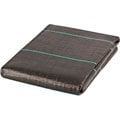 Check the current price |
|
2. Roundup Ready-To-Use Weed & Grass Killer III |
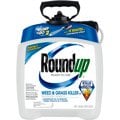 Check the current price |
|
3. Roundup Extended Control Weed & Grass Killer |
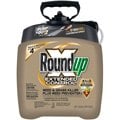 Check the current price |
|
4. BioAdvanced 704100B Bermudagrass Control |
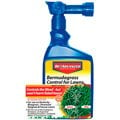 Check the current price |
How To Kill Bermuda Grass Naturally
One of the natural methods is mulching as it kills Bermuda grass. Strip off the grass and cover the soil with three layers of cardboards with about 5 inches of mulch on the top. Then, let it sit for about half a year.
Even better, you can spread out a landscape ground cover over the soil, cutting out tiny holes in the material beforehand. These holes are needed for plant species you want to grow and should fit around them. Cover the material with mulch so that your wanted plants could get enough nutrients and water. Spread the mulch 5 inches thick, which will allow you to set new plants later. Leave about three inches around the plants’ base.
The GardenMate 6 x 33 feet Sheet Woven Weed Control Fabric is designed specifically for this purpose. This is a landscaping fabric made from 3 oz/yd² woven polypropylene. The material is of premium quality and breathable. It allows water and air to penetrate into the soil beneath the sheet. Since the product is UV-stabilized, you can safely place it in greenhouses and under direct sunlight. This item is manufactured by GardenMate, a trusted German brand specializing in gardening products.
{code 1222}
Types of Herbicides for Bermuda Grass Control
Herbicides should be applied to the entire area where Bermuda grass grows. Once absorbed by the soil, herbicides turn into carbon dioxide, phosphate, and nitrogen. And this is how the Bermuda grass is killed. Herbicides can be of two types: grass-selective and non-selective. The main difference between them is that nonselective herbicides eradicate the majority of plants while selective herbicides target only grasses. Now, let’s see in what situations which one is more appropriate than the other.
Choose the Right Non-Selective Herbicides
This type of herbicide is more common but unsafe for non-target plants. The main active ingredient in broad-spectrum herbicides is glyphosate. It is a compound that inhibits enzymes used in plant synthesis. Not only does glyphosate stops the plant’s top growth but it also affects the root system. It is recommended to avoid mowing the weed for a couple of weeks before herbicidal treatment so that the Bermuda grass has as much foliage at the time of application. Wait about a week after the treatment to mow the grass. Cultivation is needed as it brings the plant’s underground parts to the soil surface, making them dry. If you fail to do so, the roots may not be affected by the first application.
1. Kill Bermuda grass in flower beds and around trees
Yes, you can apply some non-selective herbicides around flowers and ornamentals. The Roundup Ready-To-Use Weed & Grass Killer III is highly popular among homeowners and is both efficient and easy-to-apply. It doesn’t require mixing and includes a convenient sprayer with an extendable wand. One 1.3-gallon container covers about 400 square feet. The manufacturer promises that the product will kill Bermuda grass to the root, with first visible results being seen in just 3 hours.
The product’s active ingredients include 2% glyphosate and 2% pelargonic acid. The latter is an organic compound present in many plants and is widely used as a herbicide to prevent weed growth. You can safely apply this product around flower beds, vegetables as well as to cracks in patios. The amazing part about this solution is that it turns rainproof within just 10 minutes of application.
2. Prevent Bermuda grass from infesting your lawn
Meanwhile, you can take a more comprehensive approach aiming at both the killing and prevention of Bermuda grass. In this case, the Roundup Ready-To-Use Extended Control Weed & Grass Killer will be the best option. This solution not only kills existing Bermuda grass but also prevents the new one from emerging for up to four months.
In addition to glyphosate and pelargonic acid, the product contains imazapic and ammonium salt. Unlike glyphosate, imazapic is a selective herbicide that is used for pre- and post-emergent weed control. It works by inhibiting protein synthesis in weeds and is considered a relatively non-toxic ingredient. Another additional component, ammonia, is non-selective and is able to kill any plant upon contact. This herbicide, therefore, has more limited use and can be applied only to gravel areas, driveways, in patios, around trees and building foundations.
3. Use potent concentrate to deal with a severe bermudagrass infestation
The Compare-N-Save 016869 Concentrate Grass and Weed Killer is perhaps the most powerful solution on the market. One-gallon pint of fungicide contains as much as 41% of glyphosate. The concentrate can make over 80 gallons of ready-to-use solution that covers up to 25,000 sq. ft. For general control, add 3 tbsp of the concentrate to one gallon of water. If you are dealing with more persistent Bermuda grass, mix 5 tbsp to one gallon of water. Depending on the dilution rate, you can use it on driveways, along fences as well as around flower beds, trees, fruit, and vegetable gardens.
{code 1223}
Apply Grass-Selective Herbicides to Protect Your Plants
The advantage of using this type of herbicide lies in its safety for the majority of flowers, ornamental trees, and shrubs. It’s active ingredients include sethoxydim, sulfentrazone, fenoxaprop-p-ethyl, fluazifop, clethodim, and many more. These products should be applied early in spring when Bermuda grass in no more than six inches long. As a rule, grass-selective herbicides need to be reapplied several times to be effective.
1. Kill Bermuda grass in fescue
The BioAdvanced 704100B Bermudagrass Control is a perfect choice for killing Bermuda grass around flower beds and ornamentals. The formula is based on fenoxaprop-p-ethyl, a selective herbicide that is absorbed by the leaves and then translocated to the roots. Scientific research has shown that this chemical is highly efficient in controlling weeds, while wheat crops show excellent tolerance to it. This product covers 5,000 sq ft and can be safely used on grasses such as Kentucky bluegrass, fescue, and perennial ryegrass.
{code 1224}
2. Apply herbicides with a hose-connected sprayer
Another efficient solution is the Ortho Nutsedge Killer for Lawns Ready-To-Spray, which controls over 50 tough weed species. The active ingredient is sulfentrazone, a herbicide that inhibits photosynthesis in plants. It works selectively, targeting only problem weeds. This product comes in a ready-to-use sprayer bottle that needs to be connected to a garden hose. Apply the solution to Bermuda grass when it is less than three inches high and repeat application if the problem grass regrow. Keep in mind that this herbicide can be applied only to those ornamentals and vegetable plants that are indicated on the label.
{code 1225}
3. Use non-toxic all-natural herbicide products
If you are looking for an all-natural formula, try the Natural Armor Weed and Grass Killer based on sodium chloride, vinegar (acetic acid), citric acid, essential oil. While being a mild natural solution, it is fast-acting and provides first results within hours. The major advantage of this product is that it can be used almost anywhere: around flower beds, trees, foundations, on driveways, gravel areas, in parks and patios. It is a ready-to-use herbicide product that includes a trigger sprayer. Apply this grass killer to the target area on sunny days with a temperature above 65°F. The downside is that the product is not rainproof and should not be used before the rain.
{code 1226}
When to Kill Bermuda Grass
The most important thing to understand about timing is that Bermuda grass should be treated when it is vigorously growing, somewhere between May and September. Selective herbicides are recommended for application in early spring when the weeds are less than six inches in length.
Can you kill Bermuda grass in the winter? Yes, you can, but we don’t recommend it. The thing is that dormant Bermuda grass will absorb a smaller amount of herbicides. In the winter, grasses get most of their nutrients through the root system, therefore, chemicals sprayed on their leaves are much less effective. In the spring to autumn period, the leaves of Bermuda grass are green and soak everything pretty well.
Besides, it is important to avoid mowing the lawn when Bermuda grass has already spread throughout it. Do not mow it for about half a month before herbicide treatment, but irrigate the lawn so that Bermuda grass flourishes and is ready to absorb the chemicals.
Rules for Getting Rid of Bermuda Grass: Scientists’ Advice
Scientists from the University of Maryland say that small infestations can be simply dug out while chemical treatment should be used only as a last resort. The problem with herbicides is that they can pose health hazards to humans and pets, whereas perennial grasses are hard to control selectively. The researchers recommend fenoxaprop-based products as the best selective herbicides and glyphosate solutions as non-selective herbicides. The latter ones can be used both in spot treatment and for the renovation of the entire lawn.
Experts distinguish herbicides based not only on their mode of action but on the kind of lawn as well. Patrick McCullough, the Extension Specialist at the University of Georgia, explains which active ingredients should be used on St. Augustinegrass, centipedegrass, fescue, and zoysiagrass. Centipedegrass grows slower than Bermuda grass and is not sensitive to herbicides made with clethodim or sethoxydim. However, if you reapply these products several times, the chemicals may harm centipedegrass as well. To avoid this, make applications no more often than every three weeks. Keep in mind that sethoxydim-based herbicides, such as the Poast Herbicide 2.5gal – Sethoxydim 18%, are more efficient when mixed with a surfactant.
St. Augustinegrass is sensitive to most herbicide products but tolerates well ethofumesate and atrazine. You may try a popular Hi-Yield Atrazine Weed Killer, a 32-ounce concentrate covering over 3,700 square feet. To control Bermudagrass in tall fescue and zoysiagrass lawns, apply products made with fenoxaprop or fluazifop. These herbicides can be reapplied no sooner than once a month. Apart from the above-mentioned BioAdvanced 704100B, you may use the Gordon’s Ornamec 170 Grass Herbicide based on fluazifop.
Expert Opinion: Justin Moss, Turfgrass Specialist, Oklahoma State University

Justin Moss, Turfgrass Specialist, Oklahoma State University
Justin Moss is a turfgrass specialist and head of the Department of Horticulture and Landscape Architecture, Oklahoma State University. His areas of research include urban water quality, sustainable turfgrass management, and turfgrass plant physiology. Justin has multiple publications on Bermuda grass and lawn care.
“Here you see an example of excessive scalping. People lower their mower all the way as low as it can go and they just go out and scalp the yard. And what you have is a lot of exposed bare soil. We want to avoid this because when you open up the canopy too much, you expose the bare soil, allowing a place for weeds to germinate. On the other hand over here, you see that we have removed about 50% of the canopy. It is still scalping, we still opened up the canopy, allowing sunlight to penetrate through so that the grass can green up but we haven’t gotten down to the bare soil”.

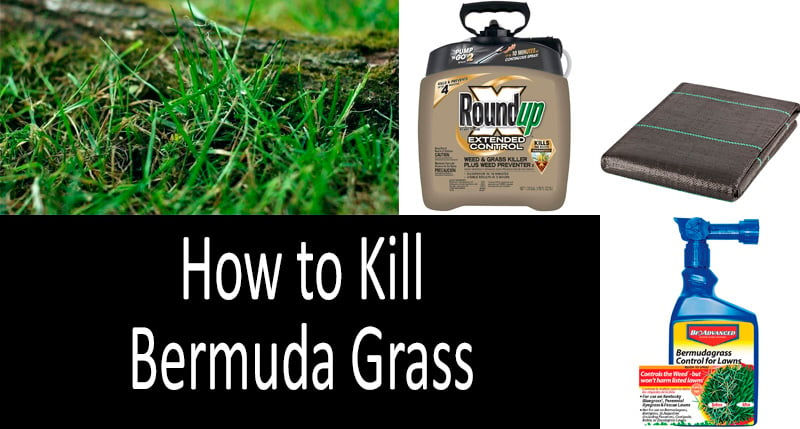

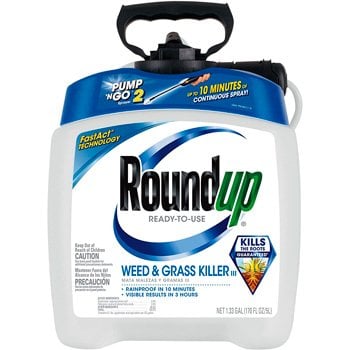
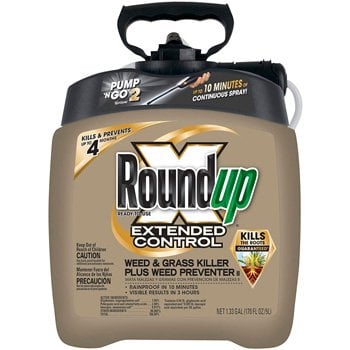




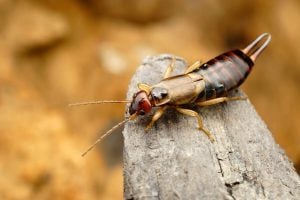

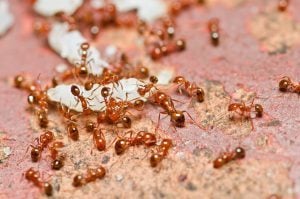

1 thought on “How to Kill Bermuda Grass without Harming the Lawn | 2022 Buyer’s Guide”
Hi. I have a small courtyard that I’ve planted with beautiful dichondra repens. It’s being invaded with Bermuda grass. How can I kill the grass but not kill my beautiful dichondra? Please help!